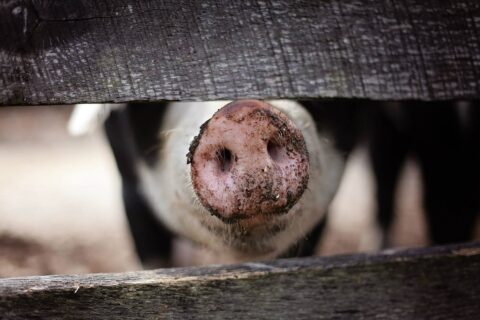Explainer
Where JD Vance Stands on Factory Farming and Meat
Election 2024•7 min read
Explainer
Ag-gag laws is a name given to a set of bills by former New York Times columnist Mark Bittman that began gaining traction in several states around 2011. The laws made the act of filming or photographing inside an agricultural or livestock facility a criminal offense, some punishable by up to one year in jail. These measures took root in states whose economy was based heavily in industrial agriculture such as North Carolina, Kansas, Arkansas, and Iowa.


Words by Jonathan Carey
Ag-gag laws is a name given to a set of bills by former New York Times columnist Mark Bittman that began gaining traction in several states around 2011. The laws made the act of filming or photographing inside an agricultural or livestock facility a criminal offense, some punishable by up to one year in jail. These measures took root in states whose economy was based heavily in industrial agriculture such as North Carolina, Kansas, Arkansas, and Iowa.
While the laws differ from state to state, they all have an element of the following:
The last element puts an individual reporting the incident at risk of prosecution if they violate laws in obtaining the information.
Many ag-gag laws have been facing ongoing battles in state courts over their constitutionality, and they have been ruled unconstitutional thus far in Colorado, Utah, and Wyoming. States where ag-gag laws are in effect include North Carolina, Kansas, and Missouri. In many more states like Kentucky, Florida, and California, ag-gag laws have failed to pass.
Further material:
Ag-Gag Laws Keep Animal Cruelty Behind Closed Doors. The Humane Society.
Ag-Gag Laws. Animal Legal Defense Fund.